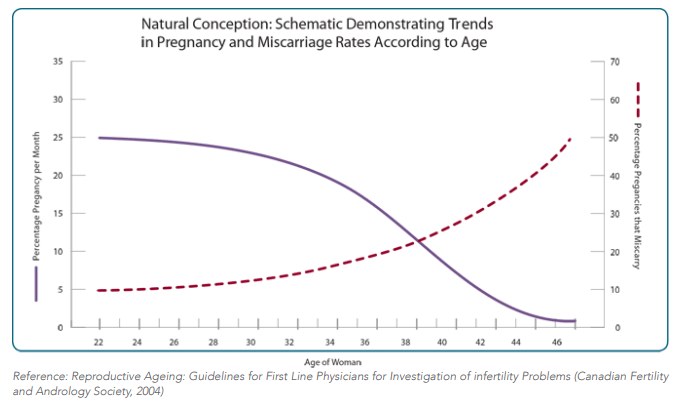The current haze situation has many people worried. And those having fertility treatment are no exception. So the question arises – will the haze affect my ivf treatment or affect my ability to get pregnant?
The first thing you need to know is that breathing in the hazy air will not affect egg or sperm as far as we know. Your lungs, kidneys, liver etc will filter out the particles (ash) as well as the chemicals that may be in the air. That way, your blood circulation is usually protected from all the impurities.
The bigger issue for us is the quality of air in the ivf laboratory. When we take the eggs and sperm out of the body during the ivf process, they are exposed to the atmosphere and therefore can be affected by any toxins or impurities floating around.
In our own laboratory, we take great precautions to ensure that the air purity is maintained. We have air filters in the airconditioning system, as well as extra filters in the laboratory to remove any impurities, very much like your own body does. These measures work all year round, not just when we have the haze. Additionally, the gases we use to grow the embryos are also ultrapure, and we have strict standards to ensure that the correct balance is always maintained. The measures we take go beyond the normal, and in the end, we are rewarded with excellent embryos. And in turn, is one of the reasons we have such good pregnancy rates.
So you need not worry about the haze having an effect on your chances of pregnancy when you have ivf with us. We will do the worrying for you, and take all precautions to ensure that we generate the best embryos possible for you.
IVF treatment can be affordable if you seek medical attention early and from an experienced fertility centre. We offer package pricing to make it easier to plan your finances during treatment. This ensures that treatment cost does not exceed your budget. Our packages for your first IVF ranges between RM12,500 to RM20,100 depending on the woman’s age, hormonal balance, BMI and medications required. Do come and speak to our Nurse Counsellors where you will be given the full financial counselling before commencing treatments.
The above pricing is correct at the time of writing and may be different at the time of starting treatment. Patient is required to follow the updated pricing at the time of commencing treatment with us
For further information, please see The cost of IVF
The hormone medicines you have to take in order to stimulate your ovaries may make you feel tired as your estrogen levels increase due to extra eggs being produced. Some people may also experience mild mood swings, breast tenderness or bloating. You can carry on with all your usual daily work but heavy exercise and impact sport is to be avoided.
A maximum of two embryos will be transferred to the uterus for possible implantation. Even by limiting the embryos transfered, we still encounter twin pregnancies in approximately 25% of our patients. Any excess good embryos will be frozen and can be used for a future ivf cycle. They can also be kept for up to 5 yrs. Some of our patients have had a single ivf egg collection and subsequently had three children as a result. The first baby came from the fresh embryos and then after the birth, the frozen embryos resulted in two further pregnancies and deliveries.
Overall IVF is a safe treatment.
A condition known as Ovarian Hyper-Stimulation Syndrome (OHSS) may occur whereby a woman’s ovaries respond unpredictably and can become enlarged. At the same time fluid accumulates in her abdomen. Although this can occur in approximately 3% of women undergoing IVF/ICSI, it is almost always minimal and can be easily managed. It can also usually be predicted and prevented. Among our patients, we have not had a case of hyper-stimulation requiring admission to hospital in over five years.
Question:
Will the IVF technique damage my ovaries?
Answer:
There is no evidence to suggest that ultrasound egg retrieval damages the ovaries. It does not cause cancer, menopause or sexual dysfunction.
- As a woman gets older, her fertility reduces.
- This is more apparent once she crosses the age of 35.
- The risk of miscarriage also increases with age e.g.:
- below 25 years, the miscarriage rate is 7%.
- above 40 years, the risk rises sharply to between 30% and 50%.
| Age | < 25 | 25 – 35 | 36 – 40 | >40 |
| Miscarriage Rate | 7% | 10% – 15% | 20% – 25% | 30% – 50% |

- it depends on your age
- the cause of infertility
- the number of eggs that are produced following drug induction
- the quality of the male partner’s semen
- the number and quality of embryos resulting from IVF/ICSI
- the quality of embryos transferred
As the woman’s age increases, this progressively drops.
Not usually, but a few days medical leave will be given after the egg collection and the embryo transfer. There is no scientific evidence that bed rest increases your chances of getting pregnant after IVF or ICSI [Eur J Obstet Gynecol Reprod Biol. 2013 Apr;167(2):123-6]. However, just to be safe, we do advise 48 hours of rest after the embryos are transfered back into your uterus.
Approximately three visits are necessary for ultrasound scans, followed by two visits to the hospital for the procedure itself.
- initial consultation with a doctor, ultrasound scan, hormonal assessment, and start of hormonal medications (on day 2 or 3 of menses).
- two further, ultrasound examinations (on day 6 and 9)
- the day of egg collection usually day 12 of cycle (half day admitted).
- the day of embryo transfer (clinic visit and rest 1 hour after the transfer)
For a more accurate view of how your ivf or icsi cycle will look, click here
To make it more convenient and less stressful for you, we use a short stimulation cycle. This means you will only need about 8 to 9 days of hormonal injections to achieve good egg numbers and maturity before the egg collection. So your cycle will only take approximately 2 weeks from the day your period starts to the day of embryo transfer. Most of Europe and Australia use this modern way of stimulation as it is much easier on the woman and has less hormonal side effects and risks of ovarian hyperstimulation.
To help you plan your time and work, go to our schedule calculator.
The HSG is an X-ray of the uterus and tubes tells whether the tubes are open or blocked. It gives little information about the outside of the tubes & the pelvis and whether there is any endometriosis or evidence of previous infection. A laparoscopy does all these things but requires general anaesthesia and is a surgical procedure, both of which carry small but definite risks.
Therefore we usually arrange an HSG first and only if there are any abnormalities seen do we recommend a laparoscopy. A normal HSG result usually also means that the laparoscopy will be normal.
There is very good scientific evidence that maintaining a positive state of mind improves your chances of a successful pregnancy. This means avoiding stressful situations and having mechanisms to cope with stresses that arise. [BJMP 2010;3(3):a336]
At KL Fertility Centre, we believe in providing a holistic approach to have a successful IVF outcome. Click here to know how we can guide you through this journey.
- Ovulation becomes infrequent or stops;
- Periods are irregular and/or heavy;
- Natural conception is reduced;
- Therapies to help ovulation are not as successful;
- There is a higher chance of miscarriage.
- A well balanced nutritional diet 3-4 months prior to conception maximises the chance of conception and live birth. This is true for both natural conception as well as IVF & ICSI.
- Folic acid taken daily reduces neural tube defects;
- Reducing stress improves ovulation and the chance of spontaneous conception;
- High caffeine intake decreases fertility;
- Smoking
- increases the incidence of infertility 3 times;
- reduces the response to fertility drugs;
- increases the risk of ectopic pregnancy;
- increases the miscarriage rate;
- increases fetal abnormalities.
[Fertility and Sterility (2004), 81(2): 384]
Infertility is defined as the inability to conceive after a year of regular unprotected intercourse, or the inability to carry pregnancies to a live birth.
[Fertility and Sterility (2009, 92(5): 1520]
